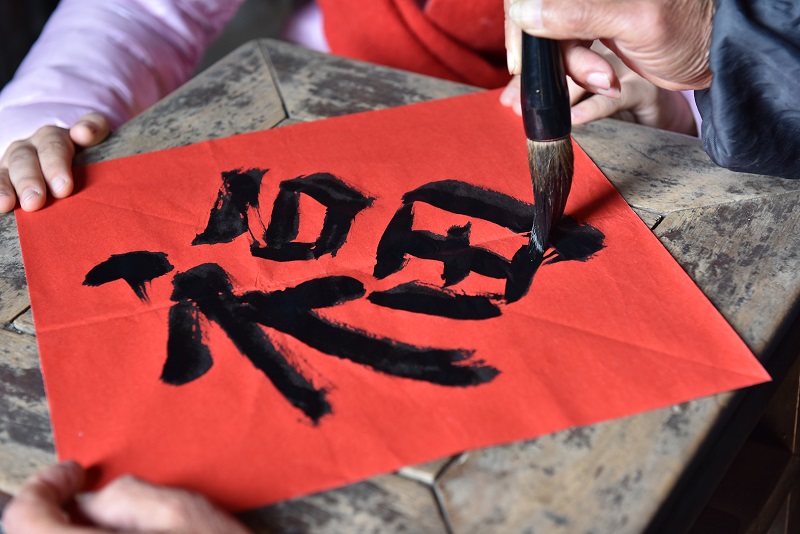
Have you decided to learn Chinese? Do you know how different between Chinese and English? The Chinese and the English are two different language families. Chinese belongs to Sino-Tibetan, while English belongs to Indo-european. Thus they have few similarities in phrases, sentence structures, and grammers.
The 5 main differences below will enable the beginners to start learning Chinese easier. Understanding the differences will help you transfer from an English speakers to a Chinese speaker.
Chinese Uses Short Sentences and More Comma vs. English Uses Long Sentences and Less Comma
In English, long sentences are quite common, especially in some official statement, news, and articles. When a long English sentence is translated into Chinese, it will be devided into serveral parts with commas. A long sentence in English gathers several parts of meanings into a whole. However, a subject in a Chinese sentence always goes first in the sentence. When subject changes, a comma is used to seperate, which breaks up the whole into some short parts. For example:
Interest in historical methods had arisen less through external challenge to the validity of history as an intellectual and more from internal quarrels among historians themselves.
人们对历史研究方法产生了兴趣,这与其说是因为外部对历史作为一门知识学科的有效性提出了挑战,还不如说是因为历史学家内部发生了争吵。
Pīn yīn: rén mén duì lì shǐ yán jiū fāng fǎ chǎn shēng le xìng qù, zhè yǔ qí shuō shì yīn wèi wài bù duì lì shǐ zuò wéi yì mén zhī shí xué kē de yǒu xiào xìng tí chū le tiǎo zhàn, hái bù rú shuō shì yīn wèi lì shǐ xué jiā nèi bù fā shēng le zhēng chǎo
Chinese Uses Active Voice vs. English Uses Passive Voice

Passsive voice is frequently used in English, especially on some official statement, news, articles, etc. Though there is passive voice in Chinese, it is not as common as it is in English. In most cases, a Chinese sentence uses people as the suject to make it initiative. For instance:
- National Day is enthusiastically celebrated on Oct.1 by the Chinese people every year.
中国人民每年都要热烈庆祝十月一日国庆节。
Pīn yīn: zhōng guó rén mín měi nián dōu yào rè liè qìng zhù shí yuè yī rì guó qìng jié - She has been given a book.
有人给了她一本书。
Pīn yīn: yǒu rén gěi le tā yì běn shū
Chinese Uses Concrete Expression vs. English Uses Abstract Expression
Chinese people like to describe something with very concrete expressions, including its material, status, colors and moves etc. While it is an opposite way in English.
- I marveled at the relentless determination of the rain.
我感到很诧异雨下的不停。
Pīn yīn: wǒ gǎn dào hěn chà yì yǚ xià de bù tíng - What they wanted most was an end of uncertainties.
那时他们最渴望的就是结束这摇摆不定的局面。
Pīn yīn: nà shí tā mén zuì kě wàng de jiù shì jié shù zhè yáo bǎi bú dìng de jú miàn - He was open to charges of willful blindness.
人们指责他装聋作哑。
Pīn yīn: rén mén zhǐ zé tā zhuāng lóng zuò yǎ
Chinese Likes to Repeat vs. English Likes to Change
In a long English sentence, it is used to express in different ways to avoid repeat, while it is not a case in Chinese. Repeating helps a long Chinese sentence become more clear in the structure.

The monkey's most extraordinary accomplishment was learning to operate a tractor. By the age of nine, it had learned to solo on the vehicle.
这只猴子最了不起的成就是学会驾驶拖拉机。到九岁的时候,这只猴子已经学会了单独表演驾驶拖拉机了。
Pīn yīn: zhè zhī hóu zi zuì liǎo bù qǐ de jiù shì xué huì jià shǐ tuō lā jī。dào jiǔ suì de shí hòu, zhè zhī hóu zi yǐ jīng xué huì le dān dú biǎo yǎn jià shǐ tuō lā jī le。
Chinese Uses More Verbs vs. English Uses More Nouns
Nouns are frequently seen in English sentences. When they are translated into Chinese, those nouns are usually turned out to be verbs.
- You must be a very bad learner.
你一定很不善于学习。
Pīn yīn: nǐ yí dìng hěn bú shàn yǘ xué xí - The computer is a far more careful inspector than human beings.
计算比人检查得更仔细。
Pīn yīn: jì suàn jī bǐ rén jiǎn chá de gèng zǐ xì
Further reading:
Bullet Train from Beijing to Shanghai: Timetable, Tickets, Prices
China Entry and Travel Restrictions in 2021
Baggage Rules of China Rail